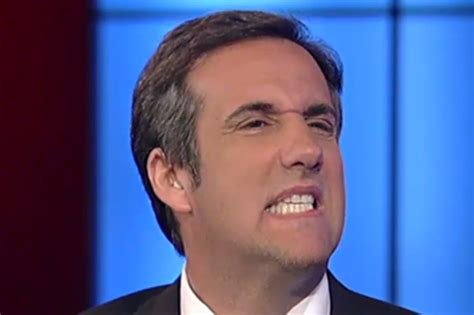Watch: President Trump holds roundtable to discuss FIRRMA – 8/23/18
President Donald Trump held a roundtable discussion on the passage of the Foreign Investment Risk Review Modernization Act (FIRRMA) and, in particular, strategy in dealing with China as a bad actor in international trade.
Initially, FIRRMA was introduced as separate measures in the House and the Senate, but on August 2, the two bodies agreed to a consensus version that was incorporated into the National Defense Authorization Act of 2019.
“Each of you was instrumental in passing the Foreign Investment Risk Review Modernization Act,” the president told the assembled group. “This new authority will enhance our ability to protect cutting-edge American technology and intellectual property vital to our national security.”
The president, members of his cabinet and members of Congress shared their concerns over China’s abuse of international trading laws and U.S. goodwill.
“This weakens our economy when they steal, destroys our jobs, and threatens the security of our country,” Trump said. “This new legislation provides the Committee on Foreign Investment in the United States greater authority when it comes to reviewing foreign ownership of American firms with critical technology and intellectual property.
“Mr. President, I appreciate the attention that you’re bringing to this issue. I don’t think that it is well known enough the intensity and the scope of efforts by other nations to steal or to simply outright purchase and access our intellectual property and our technology that’s critical for our national security,” Sen. Mike Crapo (R-ID) added.
Transcript
THE PRESIDENT: Thank you very much for being here this morning, and thank you to Secretary Mnuchin for joining us. And congratulations. You’re doing a great job. We appreciate it very much, Steve.
I especially want to welcome Senators John Cornyn, who has been working so hard lately, and especially at the border. We’re doing things that nobody else thought we could do with very bad legislation. Better get that legislation changed. I think we’ll get it done.
Tom Cotton, Mike Crapo, Marco Rubio, and Jeb Hensarling — I want to thank you all. This has been a tremendous thing that we’re sort of announcing today, but people are — they found out about it.
Each of you was instrumental in passing the Foreign Investment Risk Review Modernization Act — so important — which was included in the National Defense Authorization Act that I signed into law earlier this month.
This new authority will enhance our ability to protect cutting-edge American technology and intellectual property vital to our national security. You’ve all been reading that intellectual property and all sorts of different things of that nature are being stolen from us by other countries. It’s going to be very hard for them to do that. We’re putting a lot of safeguards in, and we’re doing a lot of things against foreign acquisition of property, and especially where they’re near sensitive military installations.
So this was a very big deal. This was a very important deal. And the people in this room are the people that really were most instrumental in wanting it and getting it passed.
Because of our incredible achievements, other nations seek to steal, copy, or control American intellectual property. And we had very, very little safeguards up. We had, in many cases, I would say, Marco, no safeguards. And now we have probably the best there is in the world. We’ll see if that’s good enough, and if it’s not, then we will keep adding on to it.
This weakens our economy when they steal, destroys our jobs, and threatens the security of our country. I’m pleased this new legislation provides the Committee on Foreign Investment in the United States greater authority when it comes to reviewing foreign ownership of American firms with critical technology and intellectual property.
And if we see something we don’t like — some country is buying something that we don’t want them to be buying — we stop it. We now have the right to stop it. They won’t be stealing our companies anymore, especially companies that are quite complex.
We will protect America’s crown jewels of intellectual property and advanced technologies from harmful foreign investments. I look forward to a productive discussion with the members of Congress here today. To a certain extent, this is a little bit of a celebration meeting, more so than a meeting, John. Right? More than a meeting on the act itself. Because we passed the Foreign Investment Risk Review Modernization Act.
But we’re very proud of it. It was in the making for years, and we got it done. So I want to very much thank the people in this room. This is really the group that worked so hard to get it.
And, Mike, maybe I’d have you start off. We’ll go around the room; we’ll say a few words about what we’ve done.
SENATOR CRAPO: Certainly.
THE PRESIDENT: Thank you, Mike.
SENATOR CRAPO: Well, first of all, Mr. President, I appreciate the attention that you’re bringing to this issue. I don’t think that it is well known enough the intensity and the scope of efforts by other nations to steal or to simply outright purchase and access our intellectual property and our technology that’s critical for our national security.
And you’re right, this legislation updates critical procedures that we have in the United States now, in both our export controls, as well as in our Committee on Foreign Investment in the United States to put us on the cutting edge to protect America’s technology, intellectual property, and ultimately our national security. So this is critically important.
And I just think it’s important that the American people realize the scope of assault on America today that is happening across this globe.
THE PRESIDENT: It’s true. That’s true. Thank you. Great job you’ve done.
Marco?
SENATOR RUBIO: Yeah, Mr. President, as you know, we often talk about this, and I’m constantly thanking you for finally standing up to China after far too long of not doing it, as an American government. This is the first time since 1991 that we have a near-peer competitor in the world. It was only America and everybody else. And now we are starting to wake up to a reality that we have a near-peer competitor. And this competitor is cheating, stealing, and undermining us, using virtually every tool at their disposal. And one of them is intellectual property theft.
They steal the stuff from us, oftentimes innovated through American taxpayer investment, and then they reverse engineer it and use it for their own purposes. Because they seek to replace us in the world — not to be equal to us; to overtake us. And it’s almost too late. But finally, someone is standing up to them. And I’m grateful to your administration for making this a priority on every front — on trade, but also on national security.
And I’m glad we’re having this meeting today. And we’ll be with you every step of the way on this.
THE PRESIDENT: Great job, Marco. And I have to tell you that — and you see it; you brought it up to me the other day — so our country, since the election, we’re up $10 trillion in worth. And unfortunately — but this is the way it goes — China, over the last four months, is down about $15 trillion. We have to stop it. We can’t allow the things that were happening to happen.
And also, we can’t allow just common trade to stay the way it was — $517 billion in deficits each year. So that’s not happening anymore.
No, I think we’re going to — and as you see, we’re rising very rapidly. We’re rising. And people have said to me, it’s the first time they’ve ever seen it where the United States is like a hot country. We used to be a hot country many years ago. but now we’re the hot country again.
Everybody wants to be here. Companies are moving in. We want some of these companies to move in also, and they’re going to be now protected and we’re going to be protected that there won’t be theft of high-grade technology.
So, thank you, Marco. I appreciate it.
John?
SENATOR CORNYN: Mr. President, under your administration, we’re finally taking the big step to address the national security threat posed by China, which has grown dramatically, as others have already said. And I believe that China represents the foremost national security and economic challenge to our country of any other country in the world —
THE PRESIDENT: Not Russia?
SENATOR CORNYN: — in the long term.
THE PRESIDENT: Not Russia?
SENATOR CORNYN: In the long term.
In addition, its military transformation and its belligerence in places like the South Sea — South China Sea — as Senators Crapo and Rubio have pointed out — they’ve engaged in outright theft of our intellectual property. But this addresses the problem of foreign investment made strategically to exploit gaps in the Committee on Foreign Investment, and for them to be able to acquire the know-how on intellectual property they need in order to gain access to this cutting-edge, dual-use technology.
I just want to express my appreciation to Secretary Mnuchin and Secretary Mattis, the Attorney General, Secretary Ross, and your entire administration for your partnership. We could not have gotten this done without each of these people at the table and certainly the leadership of Chairman Crapo on the Senate side and Chairman Hensarling on the House side. And just, this is a great accomplishment. Now we need to make sure it gets implemented. And that’s — I know we’re top of Secretary Mnuchin’s list to make sure it operates as Congress intended it in order to accomplish these goals.
THE PRESIDENT: Well, I think not enough focus has been put on China. And that’s been for a long time. And we want to have — a big focus is on Russia. Not enough focus is on China — and other countries, frankly. Not just Russia and China; it’s many countries we have to watch. And probably individuals also.
But this goes a long way. And I appreciate, very much, your words. It’s — you’ve done a great job. Thank you very much, John.
Steve?
SECRETARY MNUCHIN: I appreciate the opportunity to work with everybody in this room on this important legislation. I think this is just a great example of the Senate and the House working together, giving us, at CFIUS, the new critical tools that we need to protect investments in the United States while also allowing for investments in the United States. And we will be launching the pilot program very quickly, and we look forward to full implementation of the legislation next year.
So, thank you to everybody.
THE PRESIDENT: You guys like all those cameras behind your head as you speak? (Laughter.) I’d be very, very — I’d take a long time in combing my hair if I was going to be in that seat. (Laughter.) It would take a long time.
Tom?
SENATOR COTTON: Well, it’s a really good thing that the Congress now recognizes China as our chief, long-term rival. We’ve known for a long time that China has been hurting our manufacturing sector, and they’re not buying enough of our agricultural products. They discriminate against our companies. They just turned down the merger from Qualcomm, an American company, and NXP, a Dutch company. It had nothing to do with China; just to hurt the United States and our jobs here.
They’ve been conducting espionage for years. You know, you’ve noticed that their jets look a lot like our jets in our military.
THE PRESIDENT: Especially the F-22.
SENATOR COTTON: Exactly. And now they’re just outright buying our technology. You know, they don’t have to steal it so much anymore, especially if you’ve got smaller companies that have critical breakthroughs in technology or artificial intelligence, or quantum computing, what have you.
This legislation will allow us to recognize those threats for what they are, and to stop China from buying our most critical technology that we need to maintain our role as the world’s greatest superpower.
So I thank you for your support for this legislation, and thank you to all my peers around the table, and encourage Secretary Mnuchin and everyone on the Committee on Foreign Investment to take a very tough look at everything that China is doing to the United States.
THE PRESIDENT: And, Tom, you know, we’ve put a $50 billion number out there. Now, the total number is $250 billion. But of that, $50 billion has to do with technology — high tech and things. And there’s a 25-percent tax on that, now, coming in.
And I think that, economically, also helps us. This is very different, but it also helps us. And people are saying that’s already having a big effect. And it is already; we’re collecting that money. It’s a lot of money. Much of it is being collected. Some of it starts in a week. But it’s a tremendous amount of money coming into the coffers of the United States, which nobody has ever seen that before. Nobody has ever come close to seeing that before, actually.
Jeb?
REPRESENTATIVE HENSARLING: Thank you, Mr. President. I’m very happy to represent the House today. I don’t know what to think about the ratio. Does it take one House member to equal four senators? I don’t know. I’ll let them draw their own implications. (Laughter.)
Mr. President, I just came from doing a series of town hall meetings in the 5th District of Texas. People are enjoying — most of them — the best economy in their lifetimes. And they send their gratitude.
Your leadership on the Tax Cuts and Jobs Act, the deregulatory agenda of this administration, has made a real difference.
But you know, and this administration knows, we’re not going to keep 3 percent-plus economic growth if our intellectual property and technology is taken from us by hook and crook, and ill-gotten gains and improper leverage.
So, with your leadership, CFIUS has been updated for the first time in a decade. Needed gaps were filled. And also, Mr. President, I wanted to just thank you for helping unite our Congress and unite our nation. Because the bill that came out of the House was almost unanimous. I think we had two or three dissenting votes. And so Congress is united to ensure that this intellectual property theft does not continue; that we stand up to all the countries that are not playing by the rules, including — and especially — China.
So I want to thank my fellow Texan in the Senate for leading here, my counterpart, Senator Crapo. I want to thank a couple of the House members who aren’t here: Robert Pittenger of North Carolina who authored, originally, the House bill, and Barr, who helped shepherd it through our committee.
And I want to thank the Secretary who played a very vital role, Mr. President, in negotiating those few differences between the House and Senate, and ensuring that we could get this into the NDAA and get your signature. So I wanted to acknowledge yourself as well.
THE PRESIDENT: Thank you, Jeb, very much. This is really a great achievement, and I want to thank everybody in the room very much. Great job.
Thank you, everybody, very much. Thank you.



